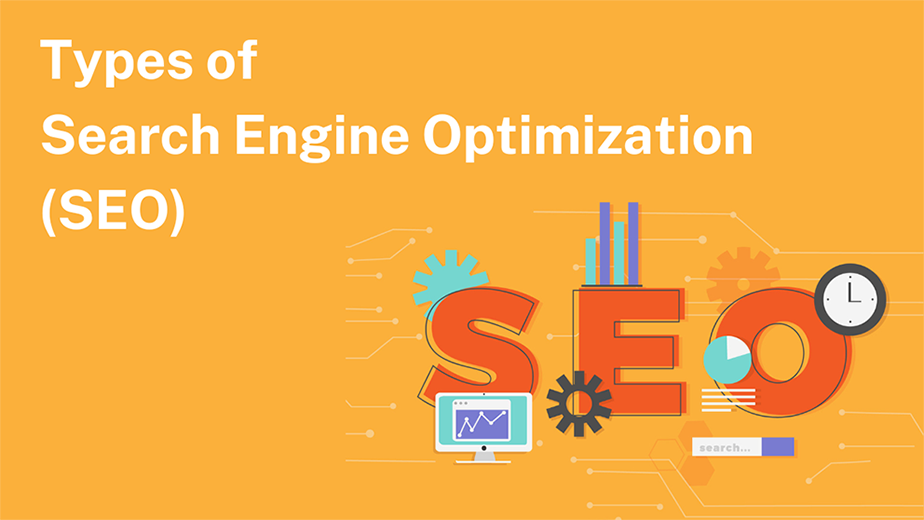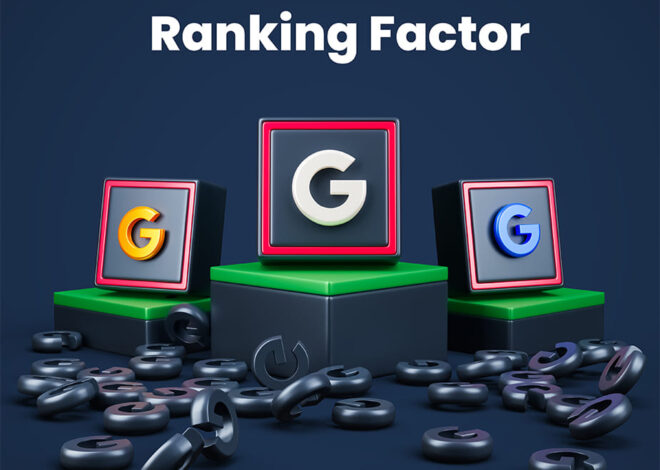
Types of Search Engine Optimization (SEO)
Table of Contents
- Introduction
- On-Page SEO (On-Site SEO)
- Off-Page SEO (Off-Site SEO)
- Technical SEO
- International SEO
- Local SEO
- E-commerce SEO
- Content SEO
- Mobile SEO
- White-Hat SEO
- Black-Hat SEO
- Gray-Hat SEO
- Negative SEO
- Conclusion
Introduction
In the ever-evolving landscape of digital marketing, search engine optimization (SEO) remains a cornerstone of online success. By optimizing your website to rank higher in search engine results pages (SERPs), you can attract more organic traffic, increase brand visibility, and ultimately drive conversions. However, SEO is not a one-size-fits-all approach; rather, it encompasses a diverse range of strategies and techniques aimed at improving various aspects of your website’s online presence. In this comprehensive guide, we’ll delve into the different types of SEO and explore how each type plays a crucial role in enhancing your website’s search engine performance. From on-page optimization to off-page strategies and technical considerations, understanding the various facets of SEO is essential for achieving sustainable growth and success in today’s competitive digital landscape. Join us as we unravel the complexities of SEO and empower you with the knowledge and insights needed to elevate your online presence and outrank the competition.
1. On-Page SEO (On-Site SEO)
Understanding On-Page SEO
- Define On-Page SEO and its significance in the broader SEO landscape.
- Explore the difference between On-Page SEO, Off-Page SEO, and Technical SEO.
- Highlight the importance of On-Page SEO in improving website ranking, relevance, and user experience.
Keyword Optimization
- Dive into the art and science of keyword research to identify high-value keywords.
- Explore strategies for strategically placing keywords in titles, headings, meta tags, and content.
- Discuss the importance of long-tail keywords, keyword intent, and semantic SEO in modern SEO practices.
Content Optimization
- Define the characteristics of high-quality, engaging content that resonates with users and search engines.
- Explore content optimization techniques, including content structure, readability, and multimedia integration.
- Discuss the role of content freshness, relevance, and comprehensiveness in driving organic search visibility.
User Experience (UX) Optimization
- Examine the impact of UX factors such as site speed, mobile responsiveness, and navigation on search rankings.
- Discuss best practices for optimizing UX elements to improve user engagement and satisfaction.
- Explore the connection between UX optimization and metrics such as bounce rate, dwell time, and SERP performance.
Technical Considerations
- Delve into technical SEO elements, including URL structure, canonicalization, and schema markup.
- Discuss the importance of website crawlability, indexability, and site architecture in search engine visibility.
- Explore advanced technical SEO techniques for optimizing website performance, security, and accessibility.
Title Tags and Meta Descriptions
- Uncover the significance of compelling title tags and meta descriptions in driving click-through rates (CTRs) from search results.
- Discuss best practices for crafting descriptive, keyword-rich title tags and meta descriptions that entice users to click.
- Explore tools and resources for analyzing and optimizing title tags and meta descriptions for maximum impact.
On-Page SEO Checklist and Tools
- Provide a comprehensive checklist of On-Page SEO factors to audit and optimize on your website.
- Highlight essential On-Page SEO tools and resources for keyword research, content optimization, and technical analysis.
- Discuss strategies for ongoing monitoring, measurement, and refinement of On-Page SEO efforts.
2. Off-Page SEO (Off-Site SEO)
Understanding Off-Page SEO
- Define Off-Page SEO and its importance in the broader SEO landscape.
- Explore the difference between Off-Page SEO, On-Page SEO, and Technical SEO.
- Highlight the significance of Off-Page SEO in building domain authority, trust, and credibility.
Link Building Strategies
- Dive into the art of link building and its impact on Off-Page SEO.
- Explore different link building strategies, including guest blogging, broken link building, and resource link building.
- Discuss the importance of acquiring high-quality backlinks from authoritative websites in improving search engine rankings.
Social Media Engagement
- Examine the role of social media in Off-Page SEO and brand visibility.
- Discuss strategies for leveraging social media platforms to engage with users, promote content, and build brand authority.
- Explore the connection between social signals, such as likes, shares, and comments, and search engine rankings.
Online Reputation Management
- Define online reputation management and its relevance to Off-Page SEO.
- Discuss strategies for monitoring and managing online reviews, mentions, and brand sentiment.
- Explore the impact of online reputation on search engine rankings and user trust.
Influencer Outreach
- Explore the concept of influencer marketing and its role in Off-Page SEO.
- Discuss strategies for identifying and collaborating with influencers in your niche to amplify your brand’s reach and authority.
- Highlight the importance of building genuine relationships with influencers for long-term success.
Content Marketing and Promotion
- Discuss the synergy between content marketing and Off-Page SEO.
- Explore strategies for creating high-quality content that resonates with your target audience and attracts natural backlinks.
- Discuss the importance of content promotion through channels such as email outreach, social media, and online communities.
Local SEO and Citations
- Define local SEO and its significance for businesses with a physical presence.
- Discuss strategies for optimizing local listings, obtaining local citations, and enhancing your website’s visibility in local search results.
- Explore the importance of maintaining consistent NAP (Name, Address, Phone Number) information across online directories.
3. Technical SEO
Understanding Technical SEO
- Define Technical SEO and its significance in the broader SEO landscape.
- Explore the difference between Technical SEO, On-Page SEO, and Off-Page SEO.
- Highlight the importance of Technical SEO in improving website crawlability, indexability, and user experience.
Website Architecture and Structure
- Dive into the importance of website architecture and structure in Technical SEO.
- Discuss strategies for organizing website content, creating logical site navigation, and improving user experience.
- Explore the impact of website architecture on crawlability, indexability, and search engine rankings.
URL Structure and Optimization
- Examine the role of URL structure in Technical SEO and user experience.
- Discuss best practices for creating descriptive, user-friendly URLs that contain relevant keywords.
- Explore strategies for optimizing URL parameters, removing duplicate content, and implementing canonical tags.
Site Speed and Performance Optimization
- Define the importance of site speed and performance in Technical SEO.
- Discuss factors that affect site speed, including server response time, page load times, and image optimization.
- Explore strategies for improving site speed and performance, such as caching, compression, and minimizing HTTP requests.
Mobile Optimization
- Examine the significance of mobile optimization in Technical SEO and user experience.
- Discuss the importance of responsive design, mobile-friendly content, and mobile usability.
- Explore strategies for optimizing websites for mobile devices, including mobile-first indexing and AMP (Accelerated Mobile Pages).
Structured Data Markup
- Define structured data markup and its importance in enhancing search engine visibility and user experience.
- Discuss the various types of structured data markup, including schema.org, JSON-LD, and microdata.
- Explore strategies for implementing structured data markup to enhance rich snippets, knowledge panels, and other search engine features.
Website Security and HTTPS
- Examine the importance of website security and HTTPS in Technical SEO.
- Discuss the impact of HTTPS on search engine rankings and user trust.
- Explore strategies for implementing HTTPS, obtaining SSL certificates, and securing website data.
4. International SEO

Unlocking global markets requires a nuanced approach, and International SEO stands as the cornerstone of expanding digital footprints across borders. With International SEO marketing strategies, businesses can transcend geographical boundaries, tapping into diverse audiences worldwide. Overseas SEO companies and international SEO consultants play pivotal roles in navigating cultural nuances and linguistic intricacies, ensuring seamless expansion into new markets. Global SEO services provided by international SEO specialists and global SEO companies facilitate optimized online visibility, empowering brands to reach global audiences effectively. International link building emerges as a vital component, fostering connections across international domains and bolstering search engine rankings on a global scale. Embrace International SEO to unlock the full potential of global markets and propel your brand towards international success.
5. Local SEO

In the vast and ever-expanding digital landscape, where businesses strive to stand out amidst fierce competition, Local SEO emerges as a vital tool for enhancing visibility and attracting nearby customers. Local SEO, or Local Search Engine Optimization, is a specialized branch of digital marketing focused on optimizing a business’s online presence to rank higher in local search results. With the rise of mobile usage and the growing importance of location-based searches, mastering Local SEO has become essential for businesses aiming to connect with their target audience in specific geographic areas.
Local SEO encompasses a range of strategies and tactics designed to improve a business’s visibility on search engines like Google, Bing, and Yahoo within a localized context. These strategies include optimizing Google My Business listings, enhancing on-page elements with local keywords, acquiring local citations, and earning positive reviews from satisfied customers.
In this comprehensive guide to Local SEO, we’ll delve into the fundamentals of optimizing for local search, explore the key factors that influence local rankings, and provide actionable tips and best practices for businesses looking to dominate their local market. Whether you’re a brick-and-mortar store, a service-based business, or a multi-location enterprise, mastering Local SEO can significantly impact your online visibility, drive foot traffic to your physical location, and ultimately, boost your bottom line. Join us as we embark on a journey to unlock the power of Local SEO and propel your business towards local success.
6. E-commerce SEO
In the fast-paced world of e-commerce, where millions of products vie for attention and consumer loyalty, E-commerce SEO emerges as the guiding force behind successful online stores. E-commerce SEO, or E-commerce Search Engine Optimization, is a specialized discipline within digital marketing focused on optimizing online stores to rank higher in search engine results pages (SERPs) and attract targeted traffic. With the e-commerce landscape becoming increasingly competitive, mastering E-commerce SEO has become essential for online retailers aiming to thrive in the digital marketplace.
E-commerce SEO encompasses a diverse range of strategies and techniques tailored specifically to the unique needs and challenges of online stores. From optimizing product pages and category structures to managing inventory and improving user experience, E-commerce SEO requires a holistic approach that addresses both technical and content-related aspects of website optimization.
In this comprehensive guide to E-commerce SEO, we’ll explore the fundamental principles of optimizing online stores for search engines, delve into the key factors that influence e-commerce rankings, and provide actionable tips and best practices for driving organic traffic and maximizing conversions. Whether you’re a small boutique or a large-scale e-commerce enterprise, mastering E-commerce SEO can significantly impact your online visibility, sales revenue, and long-term success in the competitive e-commerce landscape. Join us as we embark on a journey to unlock the power of E-commerce SEO and take your online store to new heights of success.
7. Content SEO
In the dynamic realm of digital marketing, Content SEO stands as a cornerstone for achieving top rankings in Google search results. As users increasingly rely on search engines to find valuable information, mastering Content SEO has become essential for businesses aiming to enhance their online visibility and attract organic traffic. From keyword optimization to user experience, Content SEO encompasses a multifaceted approach to crafting high-quality content that resonates with both users and search engine algorithms.
In this comprehensive guide to Content SEO, we’ll delve into the latest top Google search ranking keywords related to Content SEO and explore how to leverage them effectively. By understanding the importance of content relevance, quality, and engagement, you’ll learn how to create optimized content that not only ranks well but also drives meaningful interactions with your target audience. Join us as we unravel the intricacies of Content SEO and empower you to elevate your digital presence to new heights.
7. Mobile SEO
Welcome to the definitive guide to Mobile SEO, where we unravel the latest top Google search ranking keywords to empower you in optimizing your website for mobile devices. With the exponential rise in mobile internet usage, ensuring your website is mobile-friendly has become imperative for success in the digital landscape. Mobile SEO, also known as Mobile Search Engine Optimization, focuses on enhancing the visibility and usability of websites on smartphones and tablets, ultimately improving user experience and search engine rankings.
In this comprehensive guide, we’ll delve into the latest top Google search ranking keywords related to Mobile SEO, equipping you with the insights and strategies needed to thrive in the mobile-first era. From responsive design to mobile page speed, we’ll explore the key factors that influence mobile search rankings and provide actionable tips to help you optimize your website for mobile users effectively. Join us as we navigate the evolving landscape of Mobile SEO and empower you to unlock the full potential of your website on mobile devices.
8. White-Hat SEO
Welcome to the definitive guide to White-Hat SEO, your roadmap to ethical and sustainable search engine optimization practices. In an ever-evolving digital landscape, where search engine algorithms are constantly refined, White-Hat SEO emerges as the gold standard for achieving long-term success and credibility in the world of online marketing. As businesses strive to improve their search engine rankings and attract organic traffic, understanding and implementing White-Hat SEO techniques has become essential.
In this comprehensive guide, we’ll explore the top White-Hat SEO-related keywords trending on Google, empowering you with the knowledge and strategies needed to navigate the complex world of ethical SEO practices. From quality content creation to natural link building, we’ll delve into the core principles of White-Hat SEO and provide actionable tips to help you optimize your website while staying true to search engine guidelines. Join us as we embark on a journey to unlock the power of White-Hat SEO and propel your online presence to new heights of success, all while maintaining integrity and trust with both users and search engines alike.
9. Black-Hat SEO
In the realm of digital marketing, where competition for online visibility is fierce, some practitioners resort to unethical tactics to manipulate search engine rankings. This darker side of SEO is known as Black-Hat SEO. While it may promise quick results and temporary boosts in search engine rankings, Black-Hat SEO practices violate search engine guidelines and can lead to severe penalties, including being banned from search engine results altogether.
Black-Hat SEO encompasses a range of deceptive techniques aimed at gaming search engine algorithms to artificially inflate website rankings. These tactics often include keyword stuffing, cloaking, link spamming, and content scraping, among others. While these methods may yield short-term gains, they ultimately undermine the integrity of search engine results and harm user experience.
In this comprehensive guide to Black-Hat SEO, we’ll delve into the latest knowledge surrounding these unethical practices, shedding light on the risks and consequences associated with them. By understanding the dark side of SEO and its potential impact on your website’s reputation and long-term success, you’ll be better equipped to steer clear of Black-Hat tactics and pursue ethical and sustainable SEO strategies instead. Join us as we explore the shadowy world of Black-Hat SEO and empower you to navigate the digital landscape with integrity and authenticity.
10. Gray-Hat SEO
In the ever-evolving world of digital marketing, where search engine optimization (SEO) plays a pivotal role in online success, there exists a middle ground between ethical White-Hat SEO practices and unethical Black-Hat SEO tactics. This middle ground is known as Gray-Hat SEO. Gray-Hat SEO techniques straddle the line between acceptable and questionable practices, often pushing the boundaries of search engine guidelines without outright violating them.
Gray-Hat SEO practitioners employ strategies that may not be explicitly forbidden by search engines but still carry some level of risk. These tactics can include activities such as purchasing expired domains for link building, utilizing automated content generation tools, or participating in private blog networks (PBNs). While Gray-Hat techniques may yield some benefits in terms of improved rankings and visibility, they also come with the potential for penalties from search engines if detected.
In this guide to Gray-Hat SEO, we’ll explore the concept in-depth, shedding light on the nuances of these semi-ethical practices and the risks and rewards associated with them. By understanding the gray areas of SEO and their implications for your website’s performance and reputation, you’ll be better equipped to make informed decisions about your SEO strategy. Join us as we navigate the murky waters of Gray-Hat SEO and empower you to strike a balance between ambition and caution in your digital marketing efforts.
11. Negative SEO
Negative SEO, a dark and manipulative practice in the realm of digital marketing, continues to pose a threat to the online presence and reputation of businesses. In 2024, despite advancements in search engine algorithms and increased awareness among website owners, negative SEO tactics remain a concern. This unethical strategy involves deliberately sabotaging a competitor’s website’s search engine rankings and reputation through malicious tactics, with the goal of causing harm and gaining an unfair advantage.
With the latest update of 2024, negative SEO has evolved to include more sophisticated and covert methods, making it harder to detect and mitigate. From spammy link building and content scraping to fake negative reviews and DDoS attacks, perpetrators of negative SEO stop at nothing to undermine the credibility and authority of their competitors’ websites.
In this comprehensive guide to Negative SEO in 2024, we’ll explore the latest updates and trends surrounding this nefarious practice. We’ll delve into the various tactics used by black-hat practitioners, examine the potential impact of negative SEO on a website’s search engine rankings and online reputation, and provide actionable strategies to protect your website from such attacks. Join us as we shine a light on the dark side of digital marketing and empower you to defend your online presence against malicious actors in the ever-evolving landscape of SEO.
Conclusion
In conclusion, the diverse array of SEO techniques, including On-Page, Off-Page, Technical, Local, and more, underscores the multifaceted nature of digital marketing. As businesses strive to enhance their online visibility and attract targeted traffic, leveraging the power of SEO is paramount. From optimizing website content and structure to building authoritative backlinks and enhancing user experience, each facet of SEO plays a crucial role in driving organic growth and achieving sustainable success. At Softolax, we understand the complexities of the digital landscape and offer comprehensive SEO services tailored to meet the unique needs of our clients. With our expertise and dedication to ethical practices, we ensure that your website not only ranks well in search engine results but also delivers exceptional value to your audience. Partner with Softolax today and unlock the full potential of your online presence.



